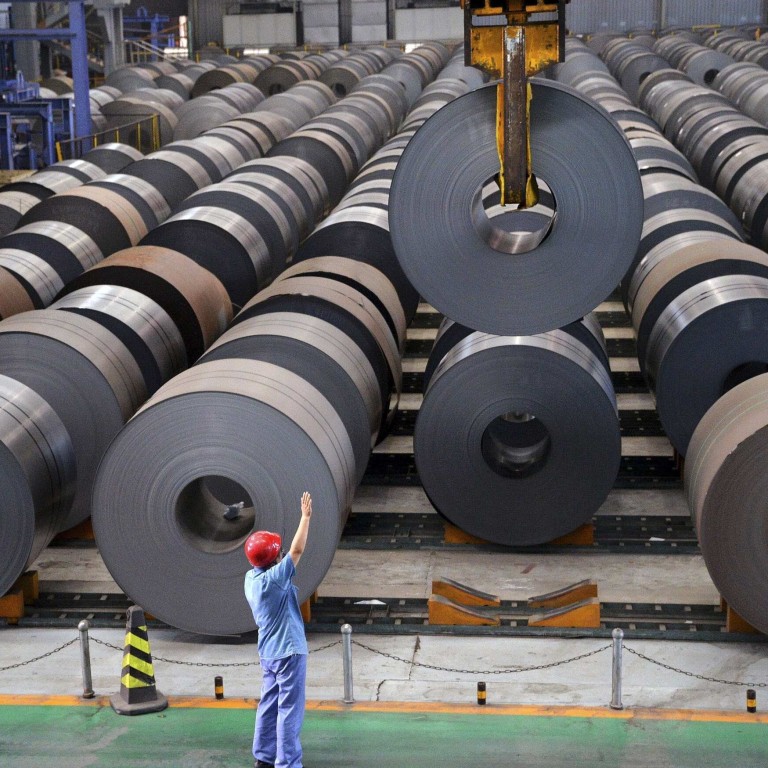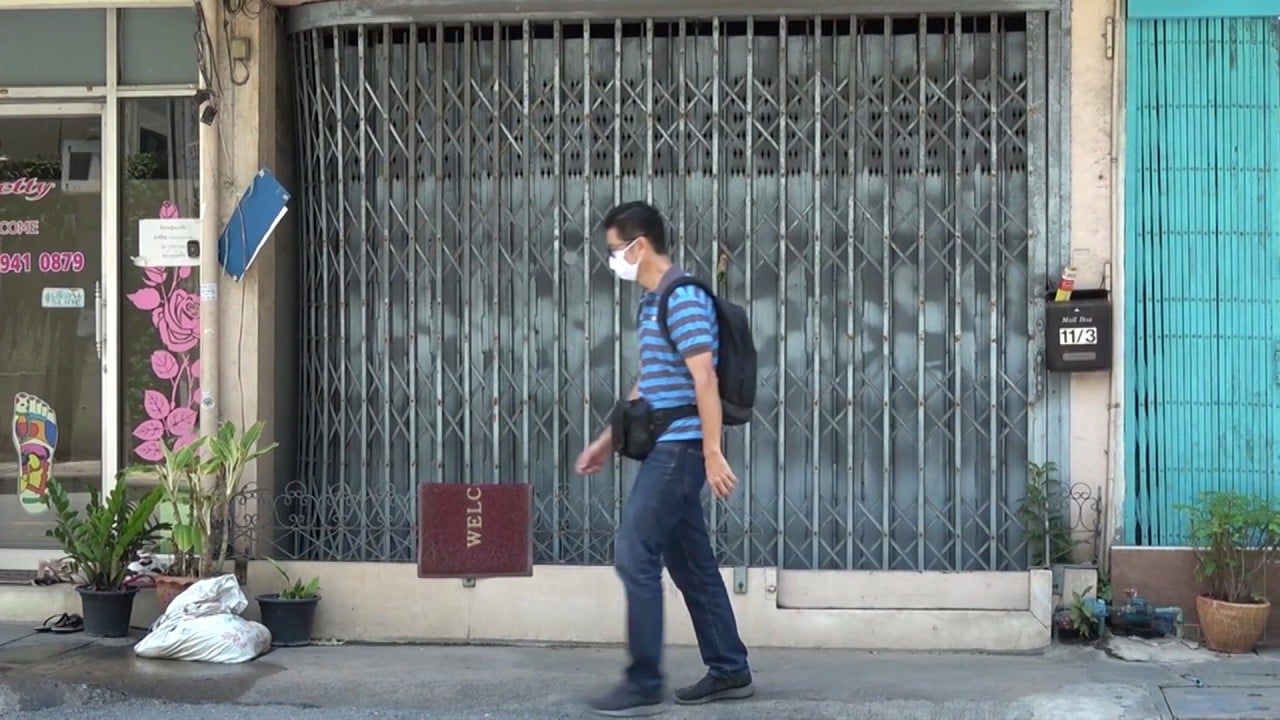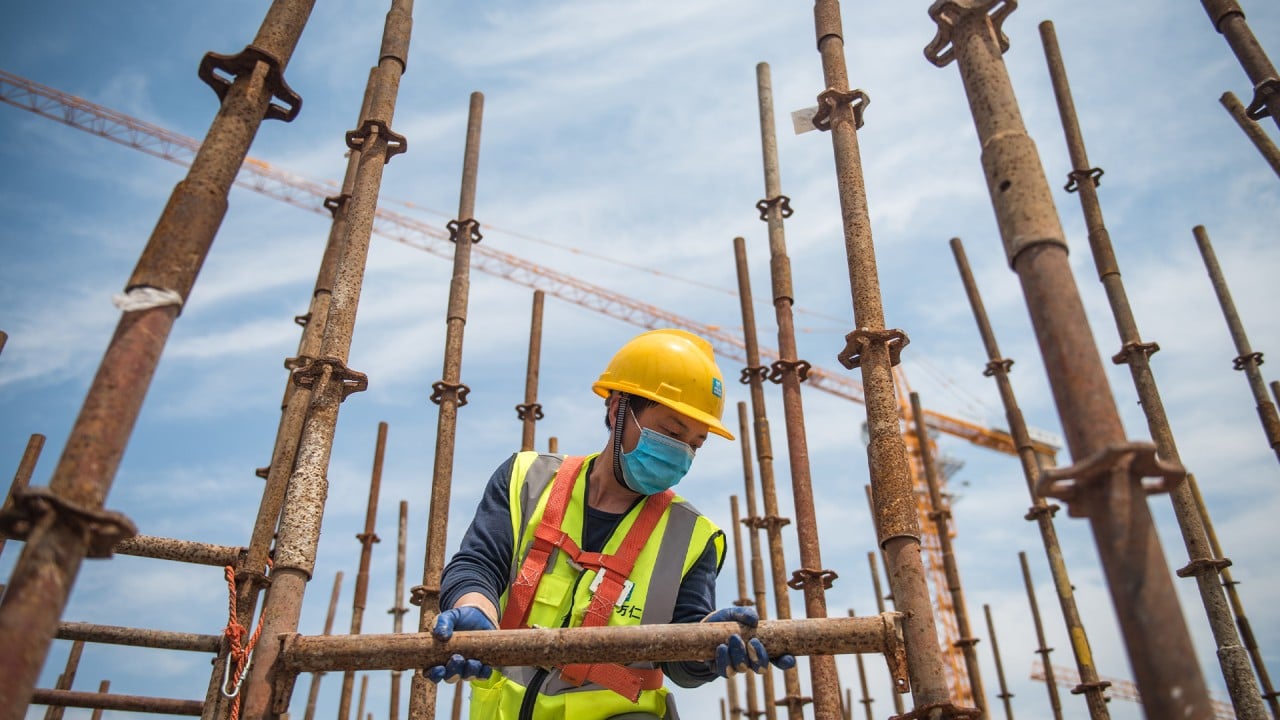
China steel exports hit by surge of anti-dumping probes as coronavirus drives protectionism
- China has been hit by 15 anti-dumping investigations into its steel exports in the first nine months of this year, up from 13 last year
- While Chinese steel dumping is a long-standing issue, the pandemic is hastening protectionism across the globe, experts say
China’s steel exports have been subject to 15 new anti-dumping investigations in the first nine months of the year, more than all of last year, as experts warn that the US-China trade war and the coronavirus pandemic have hastened a trend towards global protectionism.
Thailand went a step further in August, slapping a 35.67 per cent anti-dumping tariff on Chinese hot-dipped galvanised coils and sheets.
China, the world’s biggest steel producer, has long been accused of flooding the international market with cheap, subsidised steel, primarily due to oversupply at home. It produced 996 million tonnes of crude steel last year, more than half of the world’s combined output of 1.8 billion tonnes, according to the World Steel Association.

01:45
Thailand’s dark economic outlook a painful side effect of coronavirus success story
But against the backdrop of the coronavirus pandemic, many smaller steel producers in Asia have had enough and are doing everything possible to protect their domestic industries.
Korrakod Padungjitt, a Thai steel manufacturer and secretary general of the Thailand Iron and Steel Industry Club, said his country’s latest anti-dumping tariff on Chinese steel would just be a drop in the ocean.
Chinese steel started flowing into Thailand in the early 2000s and has increasingly squeezed regional manufacturers, Korrakod said.
The Chinese steel onslaught was so ferocious that in 2010, mainland producers mixed alloy in their steel products to circumvent existing tariffs, he added.
The issue is now a regular feature of annual meetings between the Asean Iron and Steel Council and the China Iron and Steel Association.
Earlier this year, Thailand’s Department of Foreign Trade launched an anti-dumping investigation into Chinese hot-dipped galvanised coils and sheets, which are used largely in construction and manufacturing, and in August followed through with a 35.67 per cent duty.
While it fell well short of the US Commerce Department’s 141 per cent tariff last September, Thailand’s duty is the highest that has been imposed on hot-dipped galvanised coils and sheets, said Atilla Widnell, managing director at Navigate Commodities, which provides market analyses of commodities.
Wirote Rotewatanachai, president of the Iron and Steel Institute of Thailand, said that while Chinese steel was not always dumped, imports were growing at an alarming rate. Imports of the now dutiable hot-dipped galvanised products grew 50 per cent between 2017-19.
“Thailand steel imports are over half of its domestic consumption,” said Wirote. “There were 18.6 million tonnes of domestic steel consumption in 2019, but the imports were at 12.2 million tonnes.”
Widnell said China’s undercutting of hot-dipped galvanised products was so deep – sometimes as much as US$200 a tonne – that even exporters from Japan, South Korea and Taiwan could not keep up.
“The economic loss for local producers from aggressive import pricing can be catastrophic, and in worst scenarios can lead to the closure of domestic fabricators unable to compete unless cases of dumping can be factually proven,” he said.
Thailand is not the only country that has anti-dumping tariffs on Chinese steel.
In March, the European Union imposed anti-dumping duties of between 50.3 per cent and 66.4 per cent on Chinese steel road wheels for five years.

05:02
Coronavirus backlash further fraying China’s ties to global economy
In August, the EU extended anti-dumping duties of between 17.2 per cent and 27.9 per cent on imports of Chinese corrosion-resistant steel to stop producers avoiding existing duties by slightly modifying the material they export.
“Covid-19’s impact on the international trading system is twofold,” she said in a July report. “It has reinforced existing trends such as the deceleration and now drop in the volume of international trade, the rise of economic security as governments expand their toolkit to restrict trade and investment flows, and it has laid bare the fallout in US-China relations.”
The pandemic has also brought new challenges that have exposed the extent to which trade cooperation is in short supply, she added.
“Export protectionism has risen in prominence with national restrictions on shipments of essential medical supplies and personal protective equipment,” she wrote.
It will be interesting to see if some Chinese suppliers attempt to circumvent anti-dumping duties by re-routing their material through Vietnam
Joshua Meltzer, who is also from the Brookings Institution, and Neena Shenai, from the American Enterprise Institute, struck a similar note in a report last week. The pair wrote that the pandemic has fast-tracked the decline of a rules-based global trading system, one that is suffering from an increasingly inward-looking US that is looking to repatriate supply chains from China and challenge it on its unfair trading practices.
Solis said economic nationalism and reshoring of manufacturing was not a fail-safe path to security and prosperity.
“With the absence of China as the main exporter of hot-dipped galvanised products to Thailand, this opens trade with peripheral suppliers such as Vietnam,” he said.
“It will be interesting to see if some Chinese suppliers attempt to circumvent anti-dumping duties by re-routing their material through Vietnam. This leads to challenges if that steel is then re-exported to Thailand.”


